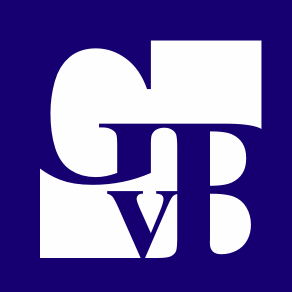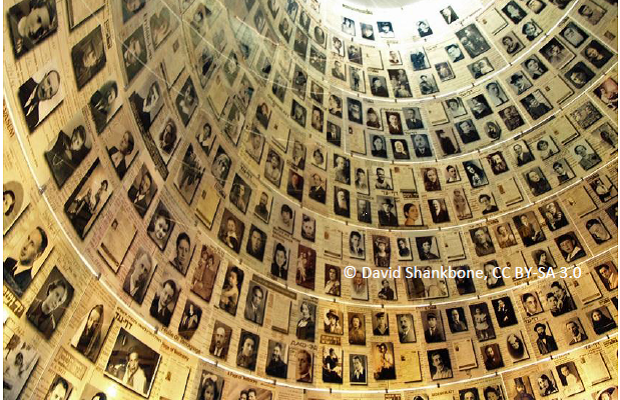Post-Holocaust Reconciliation
Versöhnung in der dritten Generation
Seit Jahren besucht Dr. Geoffrey Cahn von der Yeshiva University High School for Boys, New York City, regelmäßig Deutschland, um mit Jugendlichen über deutsch-jüdische Geschichte und ihre Auswirkungen auf die Gegenwart zu diskutieren. Die deutsch-jüdische Versöhnung in der nunmehr dritten Generation nach dem Holocaust ist das Leitthema dieser Workshops.
2013 war Geoffrey Cahn erstmals zu Gast an der GvB. Über die eigene deutsch-jüdische Familienbiographie führt der Historiker die Jugendlichen an die deutsch-jüdische Geschichte heran. Die Schüler bereiten im Vorfeld der Workshops Zeitungsartikel zu verschiedenen Aspekten auf, die mit deutsch-jüdischer Geschichte verknüpft werden. Dazu gehört der Umgang mit dem historisch-politischen Erbe ebenso wie das Verhältnis zum Nationalen, wie es heute insbesondere bei großen Sportereignissen gelegentlich zum Ausdruck kommt.
Am 23. Juni 2016 hatten zuletzt die Schülerinnen und Schüler der Klassen 10a und 10b Gelegenheit, mit Dr. Cahn über Judentum, Holocaust, Israelpolitik Neues zu lernen und zu diskutieren.
(BK)
Aus der Sicht einer Teilnehmerin
On Thursday, Dr. Geoffrey Cahn, who is a teacher in New York, visited our school to talk with us about the relationship between Jews and Germans and to better this relationship. Both his parents were born in Germany, he spoke some German and seemed to understand German quite well. It was great to hear about German-Jewish history and experience from a new and different point of view and from a generation affected more directly.
Mr. Cahn started off by telling us about his first trip to Germany, when he also visited a concentration camp and the Checkpoint Charlie Museum. He described his feelings while watching a video of the Berlin wall falling as overwhelming and positive. This emotional experience made him decide to do this reconciliation project; he has offered the workshop about 60 times.
Geoffrey Cahn then talked about his family and their history or rather their story. Both his parents were German Jews. His father, who had been arrested in Dachau for half a year, eventually made it to London, where he met his wife. She moved to England as au pair, while her brother was sent to the USA by a child transport program and her little sister died in Germany. Geoffrey Cahn’s parents met in London and finally moved to the USA. Mr. Cahn’s grandparents died before the Nazis came to power. Both his grandfathers had fought in World War One. His father’s parents as well as his mother’s parents owned a big house. One of his grandfathers had a furniture company, the other one a silk tie industry.
Furthermore, Mr. Cahn explained Judaism to us. Most Jews define themselves as Jews if their mother is Jewish. For the Nazis everyone with Jewish grandparents was a Jew. For Jews the most important document is the Torah, which tells Moses’ story from the Old Testament. Depending on strictness, a male Jew wears a kippa, which is a traditional headgear, and a tallit, which is a prayer shawl.
There are different kinds of Jews. There are the orthodox, the conservative and the reform Jews, also called liberal or progressive. Especially the orthodox Jews believe that a Jew should only marry another Jew, and they live strictly by the Jewish rules. Geoffrey Cahn defined himself as a liberal Jew, saying that he prays Jewish prayers and goes to synagogues on holidays. He also pointed out that Judaism is a religion as well as a culture.
After his presentation we started a discussion based on articles we had read in class before. This discussion included questions about the new edition of “Mein Kampf” and whether it should be distributed in schools; the soccer world cup in 2014 and national feelings that are stirred during such events; the gift shop at Buchenwald concentration camp and whether it is appropriate to sell gifts in such places; and refugees.
Most students agreed that it was suitable to republish the book, arguing that everybody should be able to read it if they want to. They also thought that not only the comments could help understand the book but it could also be used in school for older students. One student proposed that an age limit could be set to prevent tendencies of nationalism. Geoffrey Cahn agreed that it is a historical document and the republication thus is acceptable.
One question regarding the refugee topic was; Why do Germans feel attacked by refugees? Referring to the Paris attacks, some students argued that refugees indirectly open the way for terrorists to get into Europe. One student refuted that point by saying that the terrorist are clever enough to get into Europe anyway. I would also like to add that the terrorists of the Paris attacks were of European origin. Arguments about border control and their efficiency came up, too.
Questions regarding the selling of souvenirs at Buchenwald included, “Should they be sold at all? What should be sold? What should be done with the money?” Students suggested for example that educational and reconciliation projects could be supported with the help of money. Geoffrey Cahn explained that Americans are more into souvenirs, while many Europeans find selling souvenirs in such memorial places tasteless. He believes that if a specific name and a story were represented, those souvenirs would be a good reminder of the past.
Discussions about Germany winning high against Brazil in the soccer world cup brought up the question of whether the mixed feelings were caused by Germany’s historical background. The core problem seems to be that sport events are sometimes connected to politics, although this should be avoided. Most students agreed that Brazil would have been happy to win like that, but still believed that it seemed very patriotic to show the German flag. One argument for daring to wave the German flag would be that other countries have their flags out all the time. I also believe it is totally appropriate to wave the German flag, because the German flag appeared during the revolution in 1848 as a symbol of liberty and democracy. It was the national flag during the Weimar Republic but had nothing to do with nationalism. The Nazis used a totally different flag.
I think Geoffrey Cahn pointed out very important things by saying that we should remember the past in a positive way, so that the mistakes would not be made again. He wants us to remember the positive parts of our history, of which we can be proud. Germany has a good economy, is a world power, and a strong European country.
Leonie Kochs (10b)


